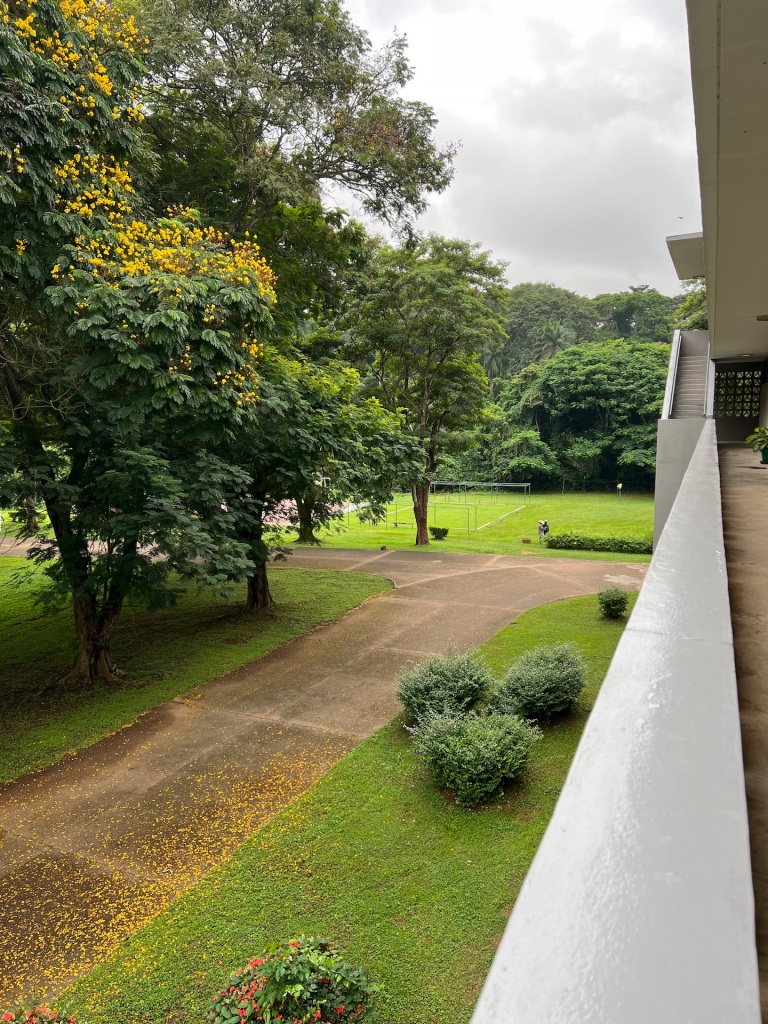I’m taking a mini detour from my series on Understanding Responsibility and the Impact of Actions to write on confidence.
It starts with fear. ‘I can’t do it,’ the voice in our head whispers. The mind hesitates and almost stutters out a ‘but…,’ but the voice continues with a more trivial reason ‘I am not tall enough, they need six feet, I’m only 5.6.’ ‘I’m shy.’ ‘I’m socially awkward.’ ‘They’ll come to see me as who I am — the impostor.’
And what’s more, the more we present this person to the world, the more we become it, the ‘socially awkward’ boy, the ‘not tall enough’ girl, ‘the impostor,’ and the list goes on. We are who we say we are.
If I didn’t define myself for myself, I would be crunched into other people’s fantasies for me and eaten alive.
Audre Lorde.
I have often dined with fear. It was my default reaction when I faced uncertainties; I know how crippling fear can be when we aren’t sure about anything; I can even describe the taste — salty, metallic, bitter — when fear becomes anxiety. I’ve found that this state of mind often leads to unhealthy reactions to situations.
Fear does not appreciate the light of awareness. When we call fear by its name, we acknowledge its presence, enabling us to approach the situation with vulnerability and proactivity in seeking solutions. Calling the problem its name allows one to start from a place of vulnerability and gratitude and arrive at forgiveness and clarity with trust in oneself.
Fear dampens confidence. When we let fear in, we become our fears, often hindering our ability to function in the presence of struggle. I’ve felt fear varying from ‘what if nobody wants to listen to me?‘ ‘what if I’m unable to provide for my family?’ I’ve found that in most situations, this fear has always been less about myself and more about others and what people will think.
I am careful not to personalise fear, for when I say ‘my fear,’ it becomes true — my fear. Instead, I express it as ‘I feel fear.’ ‘I have a fear.’ ‘The fear I’ve felt.’ This way, I’m acknowledging a state of emotion that isn’t identical with my identity. This approach helps me see this state as a visitor just here to visit, and should be on its way soon.
I have a fear, and I find that when this fear comes up in my head, I become less confident and start to stutter. The people closest to me could write a series about it. Others, however, remain oblivious unless I open up. Then, they struggle to fathom how someone perceived as ‘bold‘ as I could ever be shy.
People see me as extroverted and wonder what I mean when I mention that I struggle with talking. Just being able to articulate my thoughts and express them to others in a large social setting drains my body of energy. A colleague said it was difficult to believe I had such struggles because I didn’t show it, and I responded that I hid it well.
Each time I unmute my microphone, I battle between making my voice ‘heard’ enough and the voices in my head asking – ‘Is my voice strong enough?‘ ‘Am I making sense?‘ ‘Do these people want to listen to me?’ ‘Am I losing them?‘ ‘Uh oh, are they about to interrupt me? Have I stopped making sense?‘
So, when I started the new year, it wasn’t surprising that my journal entry was ‘I will use my voice more.’
I realise it is not easy to tell someone to be brave and confront their fears without telling them how to. The concept of bravery, as explored in my previous work, extends far beyond merely overcoming fear. At that moment, fear is all they can see; it is all that exists. I have been on both sides of the tunnel: the fearful person and the person dishing the advice. We must also remember to listen to ourselves when we dish out these bits of advice.
Whether you think you can, or you think you can’t — you’re right.
Henry Ford
If we surrender to fear, we remain where we are, stranded, stagnant. Someone who is afraid of taking the plunge to study for a new course that would take four years to complete because they think there’s no time is correct.
There’s no time if we say there’s no time. However, four years is always in the future and will eventually come. Start today, and in four years, this person will be on the verge of completion, but start later, and it will still take four years.
The next time the thought of fear comes, slow down to reflect on where you were several years ago. If you could have taken a step toward your goal back then, imagine where you could be now. Now, project yourself into the future and consider if you would regret not starting today. What’s the worst that can happen? Let these reflections spur you to action.
Fear blames because it needs an outlet to move responsibility away from the self. It finds another, who is responsible, constantly referring to the past or someone whose fault it is they can’t take responsibility in the moment.
Fear prolongs suffering.
Fear hinders our progression to the next stage. It presents a situation as ‘the obstacle,’ rather than puzzle pieces. It complicates matters, not just for us but for everyone in our lives.
Fear makes it difficult to stay grounded in the present, as it continually catapults us into a non-existing future, thus disabling our ability to see and appreciate what is happening in the present.
Many of us face fear; not even the CEO of the biggest company in the world is immune. We all have demons that keep us awake deep in the night and leave us restless long after sleep has fled. Those tiring days filled with wishes, prayers, hopes for things to be different, and anxiety about the future.
Yet, we are here, still grappling with fears, albeit new ones. If only we could look back in gratitude and see how far we’ve come.
‘beloved’ is both verb and noun, both identity and instruction. Fear is an affront to your spirit, so don’t be scared, be loved.
Moyosola Olowokure
The above quote illuminates love as the antidote to fear. When love takes over, everything feels alright — even though everything has always been okay — we just had not realised it.
Suddenly, everything becomes light and free. Freedom comes with love and clarity, bringing a new wave of confidence. We transform, becoming captivating with a new sense of allure, and in the process, we discover a new version of ourselves.
Fear is the greatest deterrent to confidence. Confidence is on the other side of fear; I searched for the synonyms and found the following:
assurance, self-assurance, self-confidence, self-reliance, self-esteem, boldness, certainty, conviction, trust, faith, positivity, poise, assertiveness, sureness, fearlessness, courage, self-trust, belief, security, composure.
The term ‘confidence‘ comes from the Latin word ‘confidentia,’ which means ‘trusting in oneself.’
Many people have reached where we aspire to be primarily because of how confident they are in themselves. They might not be more qualified than us, yet, like a butterfly with its vibrant and bold display, their confidence is immediately captivating.
Charmed by the butterfly’s radiance, it’s easy to overlook the reticent worker bee diligently making honey or the unassuming wallflower producing nectar. Yet, it’s important to remember the butterfly itself isn’t the source of the nectar enhancing its allure.
We must remember that hard work, resilience, and talent form the basis for long-lasting confidence.
By recognising our fears and calling them by their name, we bring them into the light and take responsibility for them.
We take responsibility by first slowing down to give gratitude for where we are coming from and the clarity of knowing that something is wrong and then committing towards bringing ourselves to the spotlight through curiosity and an action plan.
In my case, I began to assert myself more within my circles. In my community, I started leading some of the weekly meditation and Sunday gratitude sessions on ClubHouse. I also started participating more in the conversations. I’m not there yet, but I’m using my voice more.
Growth is uncomfortable; it’s like working a tight muscle until it stretches. I remember feeling uncomfortable the first time I turned on my camera during a video call. Now, it feels awkward to have a call with the camera off.
When we can address fear by its name, we’ve taken the first step towards light, and thereon, we can find ways to work out a solution. In time, we realise that it isn’t even all that bad.
In the words of Moyosola Olowokure, ‘Fear is an affront to your spirit. be loved.’
Fear is passive, stagnating our spirit, while love and confidence—emotions synonymous with action—propel us forward. Fear avoids action, whereas our spirit inherently thrives on doing. As we immerse ourselves in action and curiosity, we push back against fear until it becomes a mere shadow and a distant memory.
As Sang Zhi aptly puts it in my recent favourite series, ‘Hidden Love,’ ‘after all the bad things are over, all that is left are the good things. So, from now on, you must be even more certain that you are the best.’
You must be kinder to yourself. Affirm this to yourself that you are the best in the world, and no one can tell you otherwise.
Thank you so much for taking the time to read this piece. What fears do you carry with you? More importantly, what strategies have you found effective in combating these fears? Please, share your experiences and insights in the comment section. Your story might be the encouragement someone else needs.
